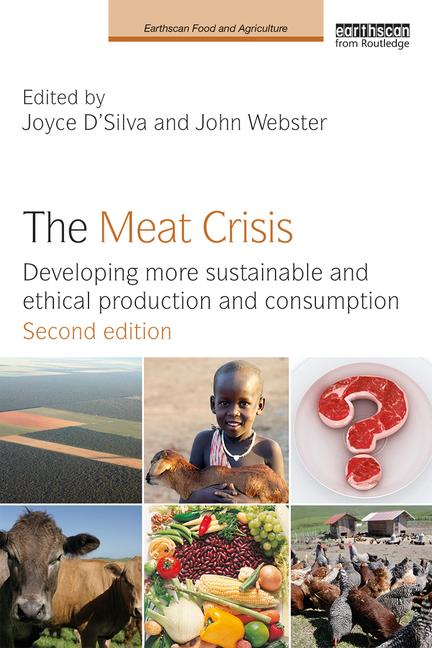FPL makes itself known














Consolidation in the beef processing industry has reduced the number of large players to just a handful of companies. While the billion-dollar corporations process the bulk of the cattle that is slaughtered in the United States, there is still room for smaller, regional companies to carve out a profitable operation. In the case of FPL Food, it has become the largest privately owned, vertically integrated beef provider in the Southeast, less than 10 years after it was founded.
FPL Food was established in 2004 in Augusta, Ga., and it has its headquarters and a value-added facility there. The company also runs two additional value-added facilities. One is located in Columbia, S.C., and the other is in Thomasville, Ga., The Thomasville plant was acquired this summer from AFA Foods as part of that company’s bankruptcy proceedings. FPL also owns and operates a 1,061-acre farm, feeding 8,000 head of cattle annually. All totaled, the company employs more than 800 people.
With a strong customer base in the retail, foodservice and export markets, the company is versatile enough to handle customer requests for both volume and niche products. The company has a boxed beef program that gives the company a global reach, and it also produces ground beef products, portion-controlled case-ready steaks, thin-sliced meats and a certified Halal program.
FPL has put an emphasis on growth and increased brand recognition, and the results have paid off, says Steve Hixon, FPL’s director of marketing.
“Realizing the beef market need and our geographic location, we wanted to both strengthen and expand our brand to first provide the Southeast United States with safe, quality and affordable beef products,” he says, “and second to broaden our reach globally and help meet the growing demand for beef products.”
Hixon notes that the company has taken steps to become vertically integrated, with the recent acquisition of its farm. The company’s one harvest facility and three further-processing facilities allow it to produce numerous ground beef, portion-control and burger patty products.
FPL has also put its energy toward developing new products for its other brands. Its Solstice Meats brand produces ethnic products, including tripe and oxtail. The Chatel Farms brand includes a variety of homestyle family-favorite entrees.
“Chatel Farms offers retail customers convenient quality products, such as our petit filet of beef tenderloin and most recently our Homestyle Meatloaf,” Hixon says.
“Chatel Farms has seen success through both social media outlets – Facebook and Twitter – allowing us to communicate directly with customers to either say “thank you” or offer product incentives,” he adds.
In addition to social networking, FPL Food has worked closely with its local and regional agriculture groups and various media outlets to help increase its brand and product awareness.
Meeting market demands of the beef industry
Whether talking about foodservice or retail, Hixon notes that the biggest trends he has seen concern convenience, affordability and safety. The company has responded to the need for convenience by creating time-saving products under its Chatel Farms brand.
“[The meatloaf and beef tenderloin products] are provided in an oven-safe aluminum tray giving consumers convenience and affordability,” he adds. The Beef Tenderloin comes in several different flavors, including Thai Red Curry, Smoked Chipotle Pepper and Herbal Trio, providing a just-right amount of seasoning for consumers. The products also allow the consumer to add an element of customization to the cooking process. The tenderloin is not pre-marinated, so the preparer can add the desired amount of sauce to the entree. The meatloaf is available with packets of ketchup or barbecue sauce, again allowing for the user to add the finishing touch to the meal.
The economy has certainly had an effect on consumer buying habits, and restaurants have been hit particularly hard. Hixon notes that the foodservice industry is constantly balancing creativity while offering affordable center-of-the-plate options. FPL, like other beef processors, has had to adapt to those changes by being just as creative as the restaurateurs in the offerings it provides. One trend he has seen has been with smaller-portioned entrees or tapas themes.
“This gives consumers options but also allows the operator to extend the use of a tenderloin or a strip loin,” he says. “Restaurants are also offering creative center-of-the-plate beef selections with an international flair. Short ribs, Culottes and Tri-tips are used to present many international dishes that introduce customers to new flavors.”
At the retail level, FPL has adapted to some of those same economic factors by maintaining cost efficiencies, which keeps the cost of its beef products low enough to allow customers to afford the beef products they desire.
Food safety always is of the utmost concern, regardless of economic issues. FPL has been among the leaders in applying the latest of technology to its slaughter and processing operations. The company was the first in the United States to incorporate a video monitoring system in its live animal handling areas. The videos are used for both internal and external audits, and all managers have desktop access to review the cameras.
Hixon says that FPL has also taken food safety one step further by implementing DNA-based traceability.
“We were the first company to test DNA traceability in the United States,” Steve Hixon, FPL’s director of marketing
“We were the first company to test DNA traceability in the United States,” he says. “With this technology, we are able to verify to our customers that 100 percent “We were the first company to test DNA traceability in the United States,” the beef produced at out facility is pure ground beef, 100 percent of the beef produced at our facility is traceable back to its source as well as offer a quick and accurate traceback to the beef’s processing batch in the event of a food safety problem.”
Looking for a reprint of this article?
From high-res PDFs to custom plaques, order your copy today!















